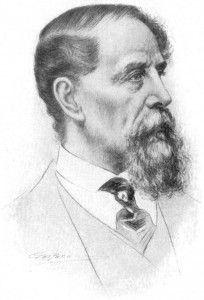 This is a challenging time to be a writer. To paraphrase A Tale of Two Cities, it is the best of times, and the worst of times.
This is a challenging time to be a writer. To paraphrase A Tale of Two Cities, it is the best of times, and the worst of times.
(Why refer to Charles Dickens? He was successful in his own lifetime, and his works have stood the test of time. As a bonus, he published his first works as serial installments, which lines up with my interests in subscriptions.)
It’s easier than ever to be a published author.
Want to write a book? The gatekeepers to publishing are, if not gone, then marginalized. New gates have appeared, unattended, all around them, through independent- and self publishing. Independent publishers are turning to crowd-funding to supply some of the financial backing they need. Simply search for books on KickStarter for an idea of what’s happening there.
If you create shorter works, you’re also in luck. Any writer can set up a blog and publish their thoughts into the world. Easier still, distribute posts on sources like LinkedIn, Facebook, and Medium and reach an established audience. The publish button beckons all of us.
Yet, it’s harder to be a writer.
Some naysayers claim that no one reads anymore. We won’t even deal with those comments. If you’ve read this far, you’re proof to the contrary. But there are significant barriers to writing.
First, there are the distractions. Social media. Netflix. Instagram. If Jane Austen had to respond to social media posts in addition to family visitors, would she ever have finished her novels?
Once you’ve published something, it’s meaningless if no one reads what you’ve written. In some areas, the digital universe is completely saturated with content. According to Amazon’s February Author Earnings report, customers of Amazon US downloaded more than one million paid ebooks per day in January 2016. Yowza.
In the world of marketing, Mark Schaefer has coined the phrase content shock to describe the situation.
It’s not enough to simply write a book; you have to market it. Whether you work with a traditional publisher or not, promoting the book is not easy.
What remains the same
Publishing has changed. Writing, editing, and distribution technologies are evolving. Even our patterns and behaviors in consuming content are in flux.
What has remain unchanged? Us.
Fundamentally, we are still social animals. Writing remains an important means of forging connections between people.
Great writing creates a moment of communion between author and reader, whether a story that resonates or a turn of phrase or metaphor that enlightens a concept in the recesses of our own minds.
At its core, writing remains an essential, valuable practice. It’s worth the effort of getting the words out of your brain and into the world, even when you have too little time and too many distractions.
But we now have more insight into how our minds work. Cognitive science offers insight into our own, consistently inconsistent brains – the ways we handle distractions, delay gratification, and nurture creativity. The lessons of psychology can help us figure out how to operate as writers in an imperfect world.